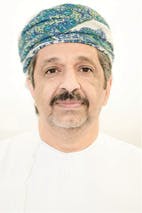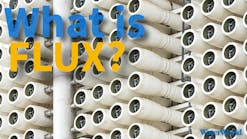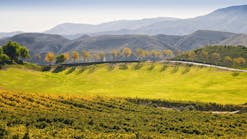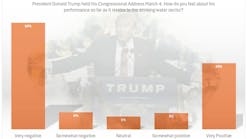Oman has made huge strides in reusing municipal water for cooling water and public space irrigation. The next challenge is to convince farmers on its benefits. One man leading the charge is Suleiman Al Qasmi from Haya Water
For a city in the Middle East, Muscat is surprisingly green. And much of this greenery can be credited to the establishment of the country’s water reuse network: manufacturing clean water from dirty to help engineer secure supplies and keep the city watered. The responsibility of this success comes down to Haya Water, which was established in 2002 by the Omani government. The name derives from the Arabic word, hayat, meaning life, which perhaps symbolises what the organisation is trying to achieve: giving new life to used water.
After signing a concession with the government for 30 years, ending by 2036, Haya Water successfully implemented wastewater collection and reuse across Muscat before being asked to roll out services across the country.
We caught up with Suleiman Al Qasmi, general manager of asset management, Haya Water to discuss the next challenge facing the organisation: convincing farmers on the merits of reclaimed water.
Water & Wastewater International magazine (WWi): Haya Water is rebranding as a water reuse company. Tell me about this journey you’re going through?
Suleiman Al Qasmi, general manager of asset management, Haya Water (SQ)
SQ: Haya Water started as a wastewater company but then we realised the need for the water reuse requirement across Muscat. Initially we only started as a concession for the Muscat area but we did really well and the government appreciated that. They then expanded our concession to cover all of Oman, expect a small area in the south, where there is already a private company.
We started in 2003 and since then we have managed to expand all over – we have a 50 percent connectivity in Muscat. Our Master Plan budget is about three billion riyal, (US$7 billion). We have a plan to achieve 80 percent connectivity by 2020. However, because of the expansion in Muscat and development in Oman, this may be delayed to 2026.
We have big ambitions and are currently exploring different types of business and partnerships. We now have PPP (public-private-partnership) projects where we are looking for international investors to come and work with us and implement some of the systems.
WWi: From a technology point of view, we have reported in the past that Haya Water has adopted and is using Membrane Bioreactor (MBR) technology. The country also has had success with natural reed bed treatment for petrochemical produced water?
SQ: In Oman we have very stringent regulations in terms of water reuse. The technology we used in Oman that could meet our specification was MBR technology. As you know, MBR is a very expensive technology so we started doing R&D within our company to explore a different type of technology we can use to reduce CAPEX (capital costs) and OPEX (operation costs) within the company. One of the technologies was reed bed – it was successful, and we could meet type A regulations. The problem with reeds bed, however, is the land – you need to have large open areas, so it can’t be implemented in Muscat.
WWi: A future development in Oman will be the reuse of municipal water for agricultural purposes?
SQ: I hope so! One of the problems we have for water reuse is the tariff. A lot of farmers do not like to pay for water because they are sourcing their water from underground aquifers. However, due to high consumption we have high saline water entering the system. Currently we produce around 200,000 cubic metres of water per day and we encourage the farmers to use our water. Unfortunately, we only use 60 percent of that water. According to our Master Plan, if we continue at this pace by the year 2026 we will only be using 70 percent maximum. This is due to population growth and no new water reuse projects. So, the next target is farmers: they will have to use our water. It will be good for them as our produced water is rich in nutrients.
WWi: The standard of that water exceeds what farmers are already taking from the ground so it makes sense?
SQ: Exactly. This will also help the country in terms of food security. Instead of importing lots of from outside the country, we can grow food using the available water. Currently, we are using the [reclaimed] water for landscaping in Muscat. If you come to Muscat you will see it’s a very green and beautiful city. We pass the water also to golf courses, all the parks in Muscat and it’s used for district cooling. We also supply the water for the one million palm tree project – currently 55,000 palm trees take the water from us. We aim to provide water for 600,000 palm trees in the long-term.
WWi: It sounds as though there’s plenty of opportunities for international companies?
SQ: Yes - please come and work with us! There are a lot of opportunities – there are two billion riyals to be spent on these projects – so there’s huge potential. We work with companies from Spain, Austria, Korea, Japan and China.
There are international companies coming to Oman but still we need more. There’s huge potential and there’s a big market in Oman for wastewater in terms of the mechanical equipment needed. Any technology that can save us money and operation costs, please bring it to Oman!
Tom Freyberg is chief editor of WWI magazine.




